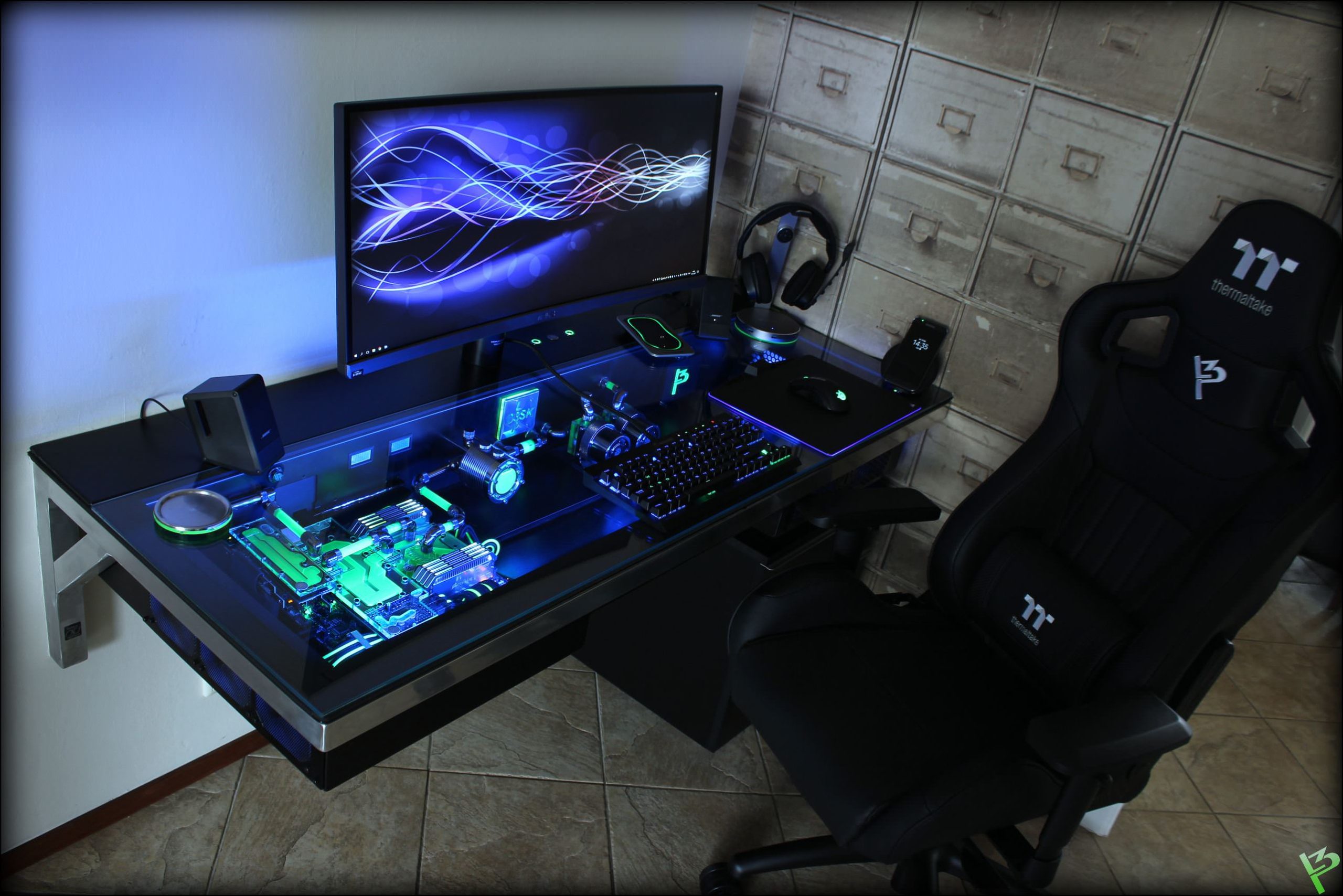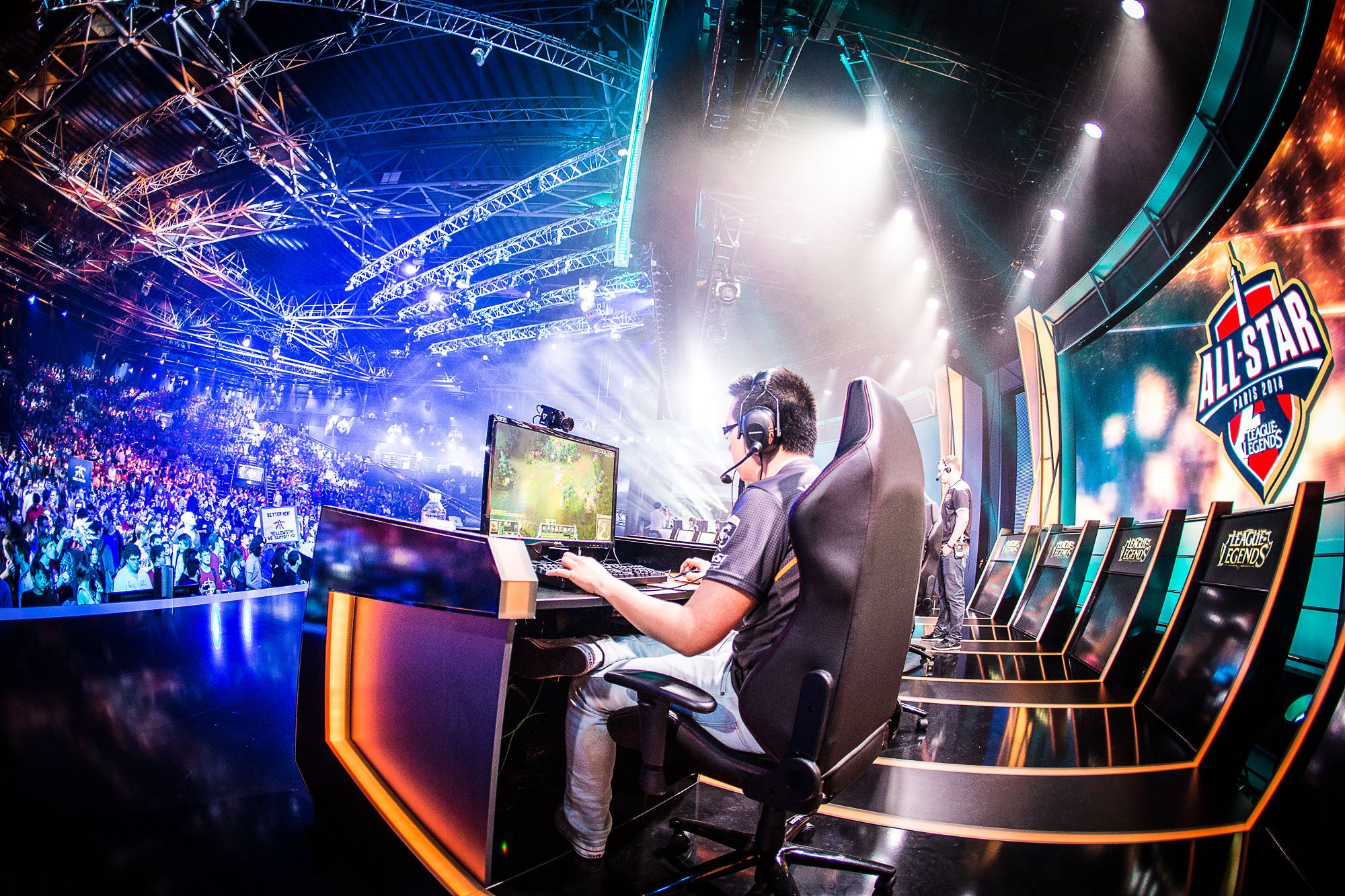Breaking News


Popular News


Gaming has become an integral part of modern culture, captivating millions of people worldwide. The allure of virtual worlds and interactive gameplay is deeply rooted in the human psyche. From triggering the release of dopamine to fostering social connections, gaming has a profound impact on the mental landscape of individuals. In this blog post, we will delve into the psychology of gaming, exploring the effects of competition, storytelling, and the ever-evolving gaming landscape on the human mind. Join us as we unravel the intricate relationship between gaming and the complexities of the gamer’s psyche.
Contents
Gaming has become a global phenomenon, captivating individuals of all ages and backgrounds. The culture surrounding gaming is multifaceted and continually evolving, with several key factors contributing to its widespread appeal:
Immersive Experience: Gaming offers a unique and immersive experience that allows players to escape from reality and engage with fantastical worlds, characters, and storylines.
Entertainment and Recreation: The entertainment value of gaming cannot be overstated. It provides a form of recreation that is not only enjoyable but also mentally stimulating.
Community and Social Interaction: Gaming facilitates social interaction and community building, whether through multiplayer games, online forums, or in-person gaming events. This fosters a sense of belonging and camaraderie among gamers.
Challenges and Achievement: The sense of achievement and progression in games, whether through conquering difficult levels or completing objectives, provides a rewarding experience that boosts self-esteem.
Escape and Stress Relief: Gaming serves as a means of escapism and stress relief, offering a temporary reprieve from the pressures of everyday life.
The appeal of gaming culture lies in its ability to transport individuals to new realms, foster social connections, and provide a source of enjoyment and challenge.
Gaming enthusiasts are drawn to the diverse experiences and opportunities for personal fulfillment that the gaming world has to offer.

When it comes to gaming, the role of dopamine cannot be overlooked. This neurotransmitter is responsible for the brain’s reward and pleasure centers, making it a key player in the gaming experience. Here’s how dopamine influences gaming:
Reward System: In gaming, dopamine is released when players achieve goals, win battles, or level up. This surge of dopamine reinforces positive behaviors, making the gaming experience inherently satisfying.
Motivation: Dopamine plays a crucial role in motivating gamers to continue playing. The anticipation of in-game rewards triggers dopamine release, driving players to overcome challenges and seek new achievements.
Engagement: The release of dopamine during gaming enhances focus and attention, keeping players immersed in the game. This heightened engagement can lead to extended gaming sessions as players strive to maintain the pleasurable dopamine response.
Comparison Table:
| Dopamine in Gaming | |
|---|---|
| Positive Influence | Negative Influence |
| Reinforces positive behaviors | Potential for addiction |
| Motivates players to achieve goals | Risk of excessive gaming |
| Enhances focus and attention | Impact on mental health |
Understanding the impact of dopamine in gaming allows us to appreciate the intricate relationship between the gamer’s mind and the virtual world they inhabit. By recognizing the role of dopamine, game developers and researchers can further explore ways to enrich the gaming experience while prioritizing players’ mental wellbeing.
Competition is a fundamental aspect of gaming that drives players to improve their skills and strive for victory. The challenge of competing against others or oneself is deeply ingrained in the gaming experience and has significant psychological implications.
In gaming, competition fuels the excitement and adrenaline rush that keeps players engaged. The competitive nature of gaming triggers the release of dopamine in the brain, enhancing feelings of pleasure and motivation. This neurochemical response reinforces the player’s desire to win, encouraging them to invest time and effort into the game.
| Aspect | Single Player Gaming | Multiplayer Gaming |
|---|---|---|
| Competition | Self-improvement and beating personal best | Direct competition with other players and teams |
| Social Interaction | Limited interaction with other players | Extensive social engagement and collaboration |
| Psychological Impact | Emphasis on personal achievement and exploration | Emphasis on teamwork, communication, and strategic thinking |
Understanding the psychology of competition in gaming provides valuable insights into the intricate relationship between gameplay, motivation, and emotional experiences. As gaming continues to evolve, the profound influence of competition on the gamer’s mindset remains a fascinating area of psychological research.
Gaming has a significant impact on mental wellbeing, both positive and negative. It’s important to understand how gaming affects our mental health to harness its benefits and mitigate any negative consequences.
Positive Impact
Negative Impact
In conclusion, gaming’s impact on mental wellbeing is multifaceted. It is crucial to strike a balance and practice moderation in gaming activities to fully enjoy its benefits while safeguarding our mental health.

Gaming has evolved from a solitary activity to a highly social and interactive experience. It has become a significant platform for fostering social connections and forming communities of like-minded individuals. The social aspect of gaming offers numerous benefits, creating opportunities for players to connect and interact in various ways.
Ways Gaming Fosters Social Connection:
Comparison Table:
Here’s a comparison of the traditional solo gaming experience and the social gaming experience:
| Solo Gaming | Social Gaming | |
|---|---|---|
| Player Interaction | Limited | High |
| Community Building | Isolated experience | Opportunities to build communities and make friends |
| Social Skills | Minimal development | Communication and teamwork skills enhanced |
In conclusion, gaming serves as a catalyst for social connection, fostering relationships and providing a sense of belonging within the gaming community. The social aspect of gaming not only enhances the overall gaming experience but also positively impacts the mental and emotional wellbeing of gamers.
Overall Word Count: 213
Storytelling in video games has a profound impact on the gaming experience and the gamer’s mind. The narrative elements, character development, and immersive plotlines contribute to the emotional and psychological engagement of gamers. Here’s how storytelling influences the gaming experience:
Emotional Connection: Gaming narratives evoke a range of emotions, from excitement and joy to empathy and sadness. These emotional connections deepen the player’s engagement with the game, enhancing the overall gaming experience.
Cognitive Engagement: Engaging storylines in video games stimulate the player’s cognitive abilities. Decision-making, problem-solving, and critical thinking are often intertwined with the unfolding narrative, promoting mental agility and strategic thinking.
Empowerment and Identity: Well-crafted storytelling allows gamers to embody characters, explore diverse identities, and experience a sense of empowerment. This aspect can significantly impact the player’s self-perception and emotional resilience.
Social Interaction: Multiplayer and story-driven games offer a shared storytelling experience, fostering social connections and collaboration among players. This social aspect enhances the sense of community within the gaming culture.
Gaming narratives, such as those found in role-playing games (RPGs) and adventure genres, effectively intertwine with the player’s emotional and cognitive experiences, showcasing the profound influence of storytelling in video games.
The psychology of gaming intertwines with storytelling, creating a rich tapestry of emotional, cognitive, and social dynamics within the gaming community.
By recognizing the impact of storytelling, game developers can create more immersive and meaningful gaming experiences that resonate deeply with the gamer’s psyche. The future of gaming holds tremendous possibilities for innovative storytelling techniques that continue to captivate and inspire gamers worldwide.
As technology continues to advance, the future of gaming holds great potential for further integration with psychological research. The relationship between gaming and mental health is an area of increasing interest, and researchers are exploring how gaming can impact cognitive functions, emotional well-being, and social behaviors. The fusion of gaming and psychology offers exciting possibilities for understanding the human mind in unprecedented ways.
The future of gaming and psychological research holds promise for enhancing our understanding of human behavior, cognition, and emotions in both virtual and real-world contexts. By embracing this interdisciplinary approach, we can unlock the full potential of gaming as a tool for psychological insight and positive impact on individuals and society.

The psychology behind gaming involves understanding how gamers think, feel, and behave while playing games. It includes aspects such as motivation, learning, decision-making, and emotional responses to gameplay.
Gaming can affect the brain in various ways, including improving cognitive functions such as attention, memory, and spatial reasoning. It can also trigger the release of dopamine, the ‘feel-good’ neurotransmitter, which can enhance motivation and reward processing.
While gaming itself is not addictive, a small percentage of gamers may develop gaming addiction, characterized by an inability to control gaming habits and negative impacts on daily life. However, most gamers can enjoy gaming responsibly without significant risk of addiction.
Yes, gaming can have positive effects on mental health. It can provide stress relief, social connection through online multiplayer games, and opportunities for creative expression. However, excessive gaming or using games as a sole coping mechanism can have negative effects on mental well-being.